If you’re receiving a grant from SASSA (South African Social Security Agency), you might wonder how closely they monitor your financial situation. One of the common questions people ask is, “Does SASSA check my bank account every month?” The answer depends on the type of grant you’re receiving.
Let’s dive into the details so you can understand how SASSA works, which grants require monthly bank account checks, and why it’s essential to keep your financial information updated.
Does SASSA Check Your Bank Account Every Month? (Quick Answer)
Yes, SASSA checks your bank account every month if you receive the SRD grant to ensure your monthly income remains below R624. For other grants, SASSA only conducts periodic reviews, not monthly checks, unless required.
Why Does SASSA Need Your Financial Information?
When applying for a SASSA grant, you must meet certain financial criteria to qualify. This means that SASSA looks at your income and other financial resources to make sure you’re eligible. They don’t just take your word for it—they verify this information to ensure that the grants go to people who genuinely need them.
SASSA uses your financial information, like your bank account details and income, to assess whether you qualify for assistance. However, the level of monitoring depends on the specific grant you receive.
Monthly Checks for the SRD Grant R370
If you’re receiving the Special COVID-19 Social Relief of Distress (SRD) grant, your bank account is checked every month. This grant was introduced to help those in need during the COVID-19 pandemic, and it has strict requirements.
To qualify for the SRD grant, your monthly income must be less than R624. This includes any money you receive, whether it’s from a job, investments, or even interest earned on your savings. SASSA checks your income every month to ensure you still meet the eligibility criteria.
If your income exceeds this amount, you won’t qualify for the SRD grant, and SASSA may stop your payments.
Do Other SASSA Grants Involve Monthly Checks?
For other types of SASSA grants, such as the Child Support Grant, Disability Grant, or Older Person’s Grant, your bank account is not checked every month. SASSA does conduct a means test when you first apply to ensure you meet the financial requirements, but they don’t continuously monitor your account.
Here’s a breakdown of the income limits for some common SASSA grants:
- Child Support Grant (CSG): Your monthly income must be less than R5,000 if you’re single or R10,000 if you’re married.
- Care Dependency Grant (CDG): Your income should be less than R20,800 if single or R41,600 combined income if married.
- Disability Grant: The monthly income must be less than R8,070 (single) or R16,140 (combined for married couples).
- Older Person’s Grant and War Veteran’s Grant: The income limit is the same as the Disability Grant, at R8,070 for single individuals and R16,140 for married couples.
Once you’re approved, SASSA generally does not monitor your bank account unless they need to verify your situation for a periodic review. This is usually done to make sure your circumstances haven’t changed, but these checks are not conducted every month.
Why the SRD Grant Requires More Monitoring?
You might wonder why the SRD grant is different from other SASSA grants. The reason is simple: the SRD grant is designed as a temporary relief for people who are in immediate financial need. Unlike other grants that are meant to provide long-term support, the SRD grant helps people who have no other source of income during tough times.
Because of this, SASSA needs to monitor your income every month to make sure you’re still eligible. If your income goes above the R624 threshold, even by a small amount, you might lose the grant. That’s why it’s crucial to ensure that your monthly income stays within the limits.
What Happens During Periodic Reviews?
Even if you’re receiving a grant that doesn’t require monthly checks, SASSA may conduct periodic reviews. These reviews are not as frequent as the monthly checks for the SRD grant, but they’re still important. During these reviews, SASSA may ask for updated financial information to make sure you’re still eligible for the grant.
If SASSA finds that your financial situation has improved like if you’ve started earning more money or received a large sum they may stop your grant or ask for more details. It’s essential to keep SASSA informed of any significant changes in your financial status to avoid issues down the road.
What Should You Do If Your Income Changes?
If your financial situation changes while you’re receiving a SASSA grant, you need to report it. This is especially true for the SRD grant, where your income is monitored monthly. If your income goes above the threshold, you may no longer qualify, and it’s better to be upfront than risk penalties later.
For other grants, it’s still important to notify SASSA if your income significantly increases. While they may not check your account every month, they can perform periodic reviews, and failing to report changes could result in issues with your grant.
Conclusion
So, does SASSA check your bank account every month? The answer depends on the type of grant you’re receiving. For the SRD grant, SASSA does check your income each month to ensure that you’re still eligible. If your monthly income exceeds R624, you may lose the grant.
For other grants like the Child Support Grant or Disability Grant, SASSA does not monitor your account monthly, but they may conduct reviews from time to time.
Keeping your financial information up to date with SASSA is crucial. Whether you’re receiving the SRD grant or another type of assistance, make sure you stay within the income limits and report any significant changes to avoid complications.

I’m Anele Zulu, a South African social worker dedicated to serving my country’s most vulnerable. With my degree and field expertise, I empower underprivileged communities through compassionate support and tireless advocacy on this website. My goal is simplifying access to services so families can uplift themselves
Contents
- 1 Does SASSA Check Your Bank Account Every Month? (Quick Answer)
- 2 Why Does SASSA Need Your Financial Information?
- 3 Monthly Checks for the SRD Grant R370
- 4 Do Other SASSA Grants Involve Monthly Checks?
- 5 Why the SRD Grant Requires More Monitoring?
- 6 What Happens During Periodic Reviews?
- 7 What Should You Do If Your Income Changes?
- 8 Conclusion

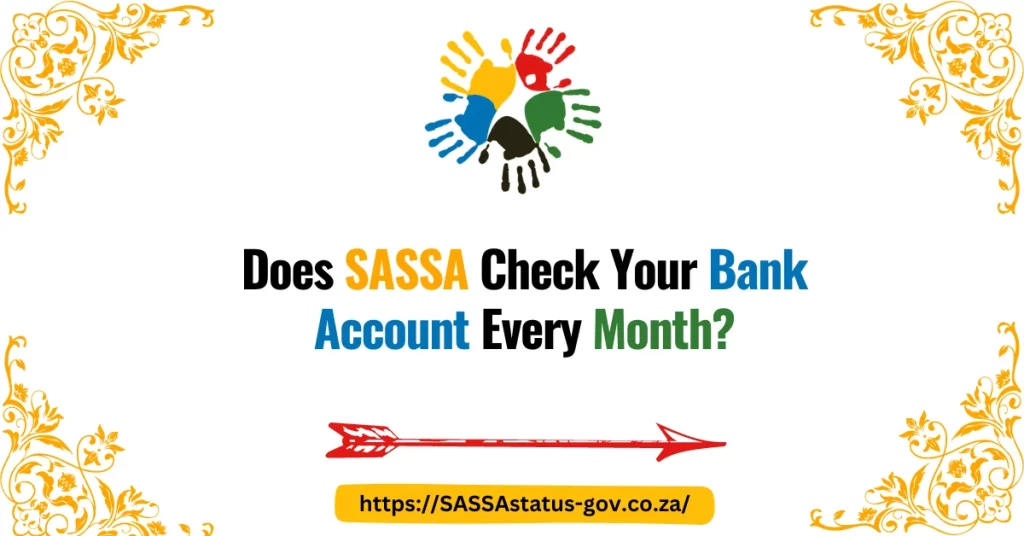
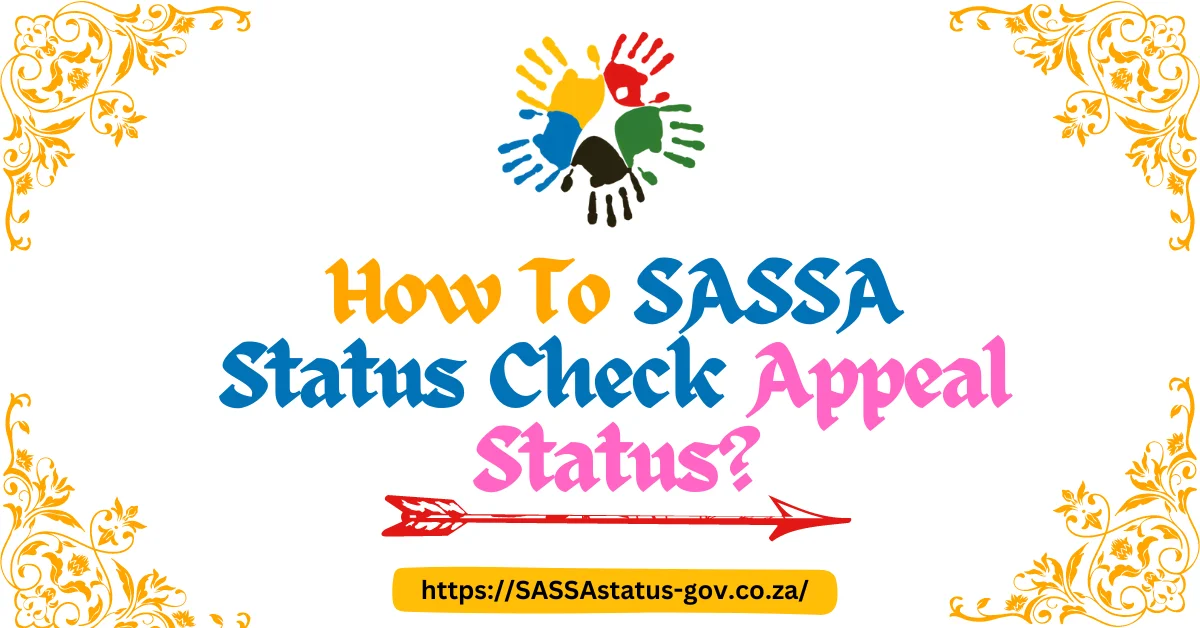
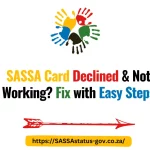
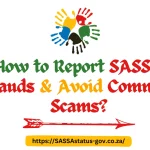
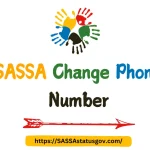
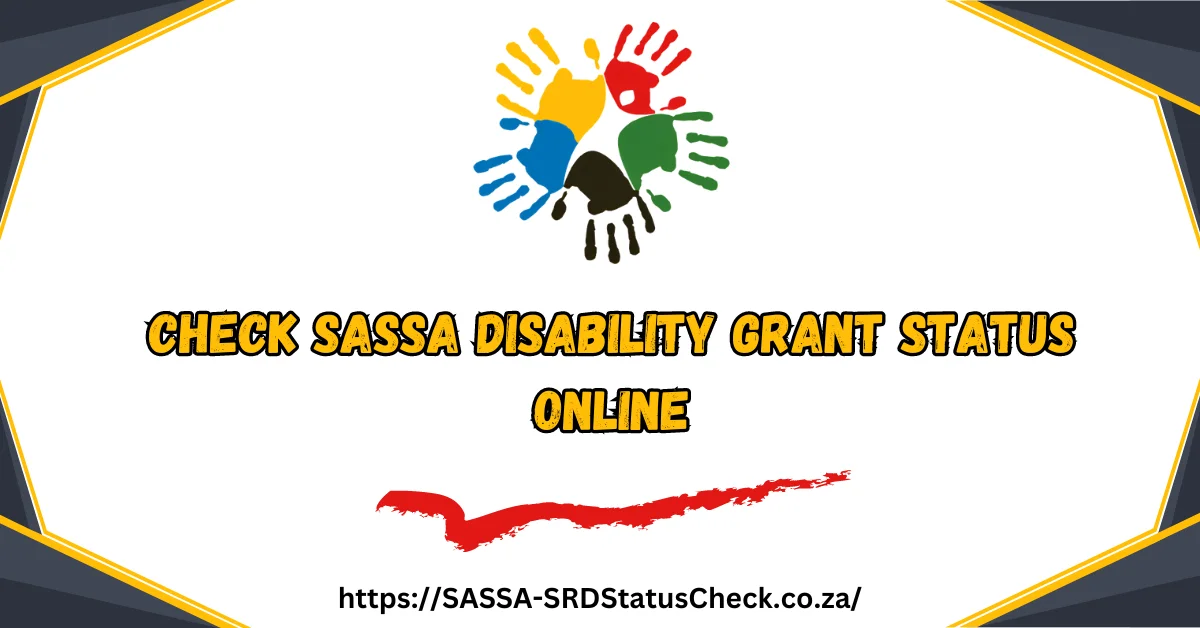
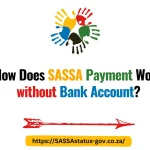
![SASSA Grants Types in South Africa [2024] - [Ultimate Guide] The Complete Guide to SASSA Grants Types in South Africa](https://sassastatusgov.com/wp-content/uploads/2024/02/The-Complete-Guide-to-SASSA-Grants-Types-in-South-Africa.webp)